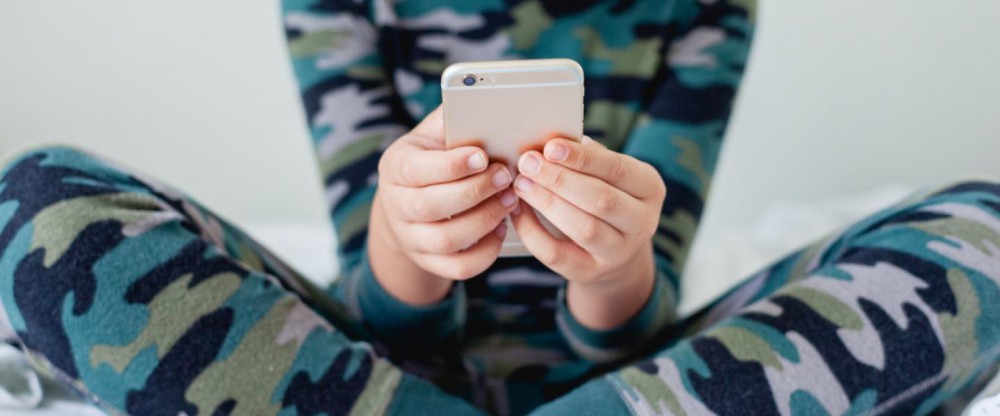How Blue Light Affects Kids & Sleep
As difficult as it is to get kids to stop watching TV or using their electronic devices before bedtime, there’s a compelling reason to make it happen. The blue light that’s emitted from these screens can delay the release of sleep-inducing melatonin, increase alertness, and reset the body’s internal clock (or circadian rhythm) to a later schedule. This is an especially big problem for teens whose circadian rhythms are already shifting naturally, causing them to feel awake later at night. The end result: sleep-deprived or poorly rested kids who have essentially given themselves a mini case of jet lag.
The reason that blue light is so problematic is that it has a short wavelength that affects levels of melatonin more than any other wavelength does. Light from fluorescent bulbs and LED lights can produce the same effect. Normally, the pineal gland in the brain begins to release melatonin a couple of hours before bedtime, and melatonin reaches its peak in the middle of the night. When people read on a blue light-emitting device (like a tablet, rather than from a printed book) in the evening, it takes them longer to fall asleep; plus, they tend to have less REM sleep (when dreams occur) and wake up feeling sleepier— even after eight hours of shuteye.
Consider these effects good reasons to impose a digital curfew on your kids. Have them power down their electronics, including the TV, an hour or two before bedtime so their bodies can start producing more melatonin. If that’s just not possible—if they’re madly finishing their homework on a computer, for instance—it helps to dim the brightness on the screen. Or, you can install an app that automatically warms up the colors on the screen—away from blues and toward reds and yellows—at sunset. Also, avoid using energy-efficient (blue) bulbs in nightlights in bedrooms and bathrooms; opt for dim red lights instead because red light has a higher wavelength and does not suppress the release of melatonin.
The right head support can greatly improve how comfortable you feel in bed.Learn more about how these medical devices can make a big difference in nighttime comfort for people with breathing issues.Have you ever wanted to know what happens to your body during menstruation? The latest infographic from the National Sleep...Explore how today's modern family sets rules for sleep, navigates the use of technology in the bedroom, how parents can...The Electronics and Sleep infographic highlights how technology affects the modern family and how parents can help design a sleep...Orexin receptor antagonists: A new class of sleeping pill Find out more about orexin, and a new type of sleep...The term “anti-aging” may conjure up images of expensive wrinkle creams and nutritional supplements, but one of the most impactful...Though it may come as no surprise that people find it harder to fall asleep when they’re emotionally wound up,...Sleep problems like insomnia can be caused by many different factors, including chronic pain, acid reflux, and depression. But did...If your child’s bedtime routine during the summer has slipped with staying up late and sleeping in late, it’s never...

Source: Internet





